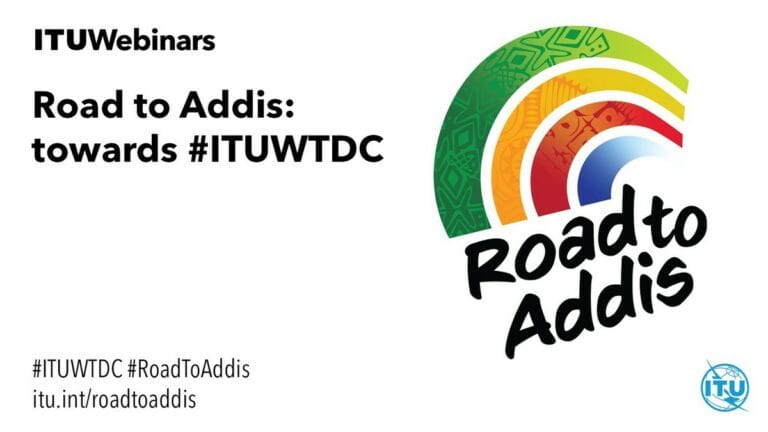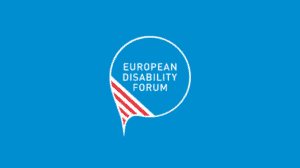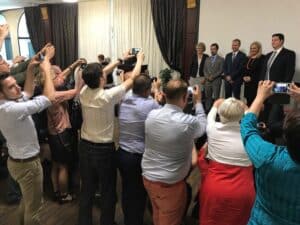Par 20th of September, the EUD attended a webinar entitled ‘The Road to Addis: Partner2Connect’, which was part of the series of virtual events that are being hosted by the International Telecommunication Union (ITU) leading up to the World Telecommunication Development Conference in Addis Ababa, Ethiopia (which took place on 6–15 June 2022). The event was the final webinar to conclude the discussion on the ‘Six enablers of connectivity for sustainable development’. Moreover, during the event, the ITU launched a report called ‘Launch of the connectivity in the least developed countries: Status report 2021’.
Doreen Bogdan-Martin, Director of the ITU’s Telecommunication Development Bureau, opened the discussions by advising participants of the need to form multi-stakeholder alliances to foster digital transformation. Alongside Mrs Bogdan-Martin, Mr Brad Smith, the president of Microsoft, argued that without connectivity, it is not possible to have a voice in the current technological climate. Both presenters stressed the need for accessibility for all persons, regardless of socioeconomic status or any intersectional perspectives, in order to bridge the digital divide.
During the event, Ms Emma Randal, a young leader of Generation Connect at the ITU, addressed the inclusion aspect of connectivity. Ms Randal argued that there is an increasing need for digital inclusion with a focus on children, persons with disabilities, girls and women, elderly people, and indigenous people. Ms Randal explored how digital exclusion results in amplifying social, economic, and educational inequalities, whereas inclusion means access to affordable, high-quality infrastructure and digital literacy and education for all. She concluded that communication and ICT access is a right and not a privilege.
Usha Rao-Monari, Under-Secretary-General and Associate Administrator of the United Nations Development Programme (UNDP), explained that the digital transformation can worsen inequality if it is not done in a way that considers intersectionality. Mrs Rao-Monari highlighted that digital inclusion must go beyond accessibility and affordability, to create an inclusive ecosystem of governments, NGOs, the private sector, academia, and civil society organisations.
In conclusion, the event allowed EUD to see several exciting multi-stakeholder initiatives and the progress they have made towards reaching the Sustainable Development Goals and bringing society together to bridge the ever-increasing digital divide. For the deaf community, we need to work collaboratively with technology companies and governments to ensure that the digital transformation includes the deaf perspective so that no-one is left behind.












